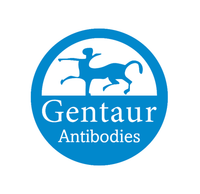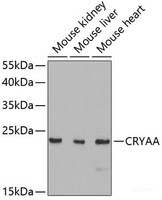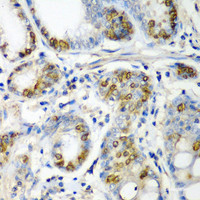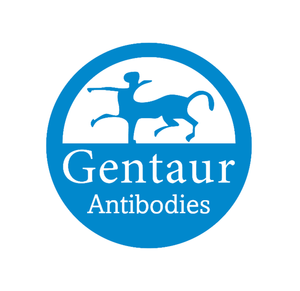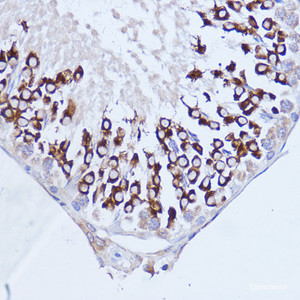CRYAA Polyclonal Antibody | G-AB-10799
Gentaur Antibodies
- SKU:
- G-AB-10799
- Availability:
- 3 to 5 Working Days
- Host:
- Rabbit
- Reactivity:
- Human, Mouse, Rat
CRYAA Polyclonal Antibody | G-AB-10799 | Gentaur Antibodies
Overview: Mammalian lens crystallins are divided into alpha, beta, and gamma families. Alpha crystallins are composed of two gene products: alpha-A and alpha-B, for acidic and basic, respectively. Alpha crystallins can be induced by heat shock and are members of the small heat shock protein (HSP20) family. They act as molecular chaperones although they do not renature proteins and release them in the fashion of a true chaperone; instead they hold them in large soluble aggregates. Post-translational modifications decrease the ability to chaperone. These heterogeneous aggregates consist of 30-40 subunits; the alpha-A and alpha-B subunits have a 3:1 ratio, respectively. Two additional functions of alpha crystallins are an autokinase activity and participation in the intracellular architecture. The encoded protein has been identified as a moonlighting protein based on its ability to perform mechanistically distinct functions. Alpha-A and alpha-B gene products are differentially expressed; alpha-A is preferentially restricted to the lens and alpha-B is expressed widely in many tissues and organs. Defects in this gene cause autosomal dominant congenital cataract (ADCC) .
Category Type: Polyclonal Antibody
Research Areas: Cancer, Neuroscience, Signal Transduction, Tags & Cell Markers
Synonyms: CRYAA, CRYA1, CTRCT9, HSPB4
Reactivity: Human, Mouse, Rat
Host: Rabbit
Isotype: IgG
Gene ID: 1409
Accession #:
Clonality:
Immunogen: Recombinant fusion protein of human CRYAA (NP_000385.1) .
Clone #:
Conjugation: Unconjugated
Swissprot: P02489
Santa Cruz:
Calculated MW: 19 kDa
Observed MW: 23 kDa
Concentration: 1 mg/mL
Buffer: PBS with 0.02% sodium azide, 50% glycerol, pH7.3
Purification method: Affinity purification
Application: WB, IHC, IF
Dilution: WB 1:500-1:2000 IHC 1:50-1:200 IF 1:50-1:100
Storage: Store at -20°C. Avoid freeze / thaw cycles.

